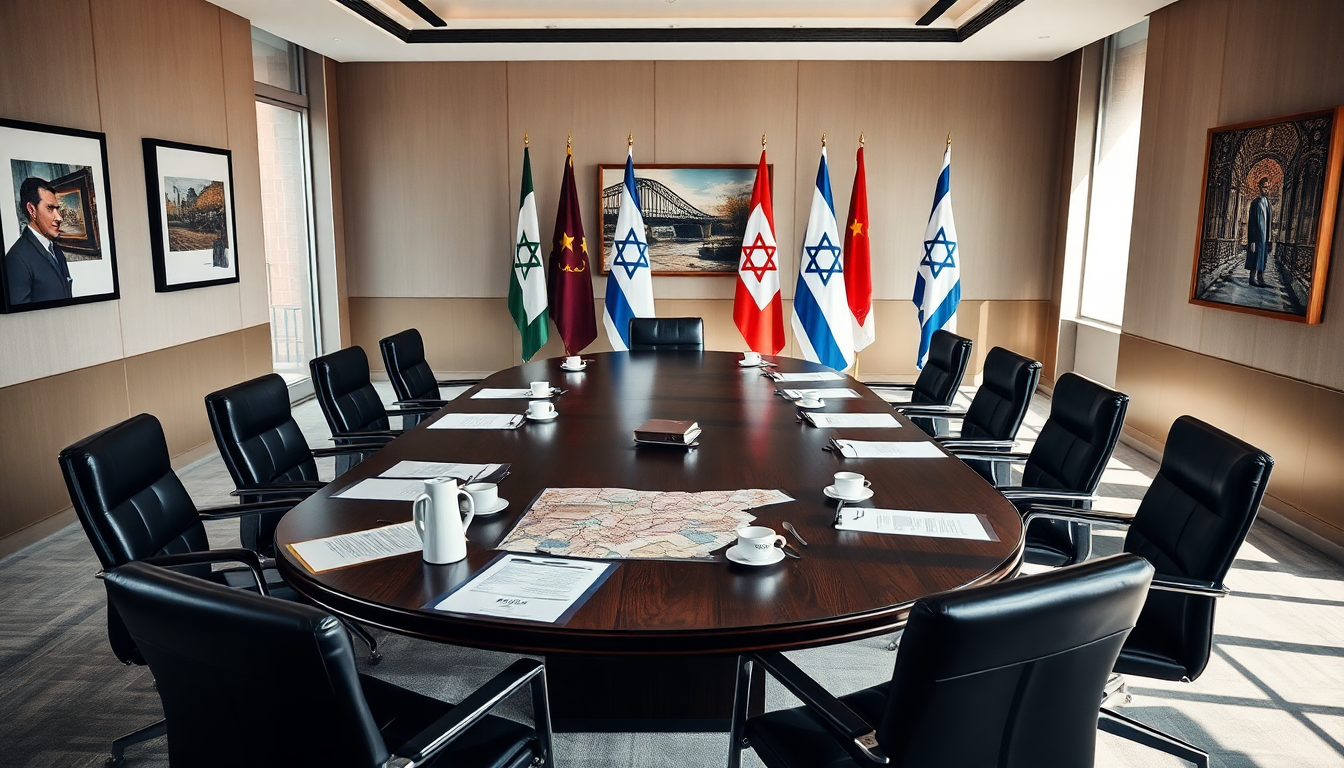Table of Contents
In light of the escalating violence and military actions in southern Syria, recent diplomatic talks between Syrian and Israeli officials have caught quite a bit of attention. These discussions, held in Paris and mediated by the United States, are not just another round of formalities; they reflect the intricate web of issues surrounding the ongoing conflict in the region and carry major implications for regional security and the potential for future peace.
Context of the Recent Talks
So what’s really going on? The backdrop of these negotiations is troubling, marked by a spike in sectarian violence, particularly in the Druze-majority city of Suwayda. This area has seen intense clashes between Bedouin and Druze factions, prompting military responses from both the Syrian government and Israel.
The Israeli military has been involved, conducting airstrikes on government positions, which they argue are necessary to protect the Druze population. This intervention only adds more layers to the already volatile situation.
A Syrian official revealed that the Paris discussions were primarily focused on the security issues surrounding Suwayda, a region that has turned into a hotspot for conflict.
The Syrian delegation emphasized that the unity and sovereignty of Syria are non-negotiable, asserting that Suwayda and its people are an integral part of the nation. This firm stance shows Syria’s reluctance to entertain any proposals that might hint at breaking up its territorial integrity.
Key Outcomes and Future Implications
While the meeting didn’t result in any concrete agreements, it was labeled as “honest and responsible,” signaling a readiness from both sides to keep the conversation going. The Syrian delegation placed the blame for the recent surge in violence squarely on Israel, demanding the withdrawal of Israeli forces from newly occupied areas in the region.
These statements underline the ongoing tensions and the delicate balance both nations must navigate.
The implications of these talks reach far beyond immediate security issues. With hundreds of casualties reported amid the ongoing fighting, the stability of the region hangs by a thread.
Interim Syrian President Ahmed al-Sharaa faces daunting challenges in establishing control and fostering peace within a divided society. His administration’s attempts to broker ceasefires and restore order will undoubtedly be closely monitored, as the effectiveness of these initiatives could shape the future of Syrian governance and its relationships with neighboring countries.
Looking Ahead: The Road to Stability
As discussions progress, the future stability of Syria and its relationship with Israel will depend on various factors. The ongoing dialogue must lead to more substantial agreements that not only address military interventions but also tackle the underlying socio-political issues driving the conflict. The international community’s involvement, especially that of the United States as a mediator, will play a vital role in steering the outcomes of these negotiations.
In conclusion, while the recent talks between Syria and Israel may not have settled immediate tensions, they represent a crucial step in addressing the complex challenges facing the region. The commitment to continued dialogue is essential as both nations navigate the harsh realities of conflict and hold onto the hope for a more stable future.





